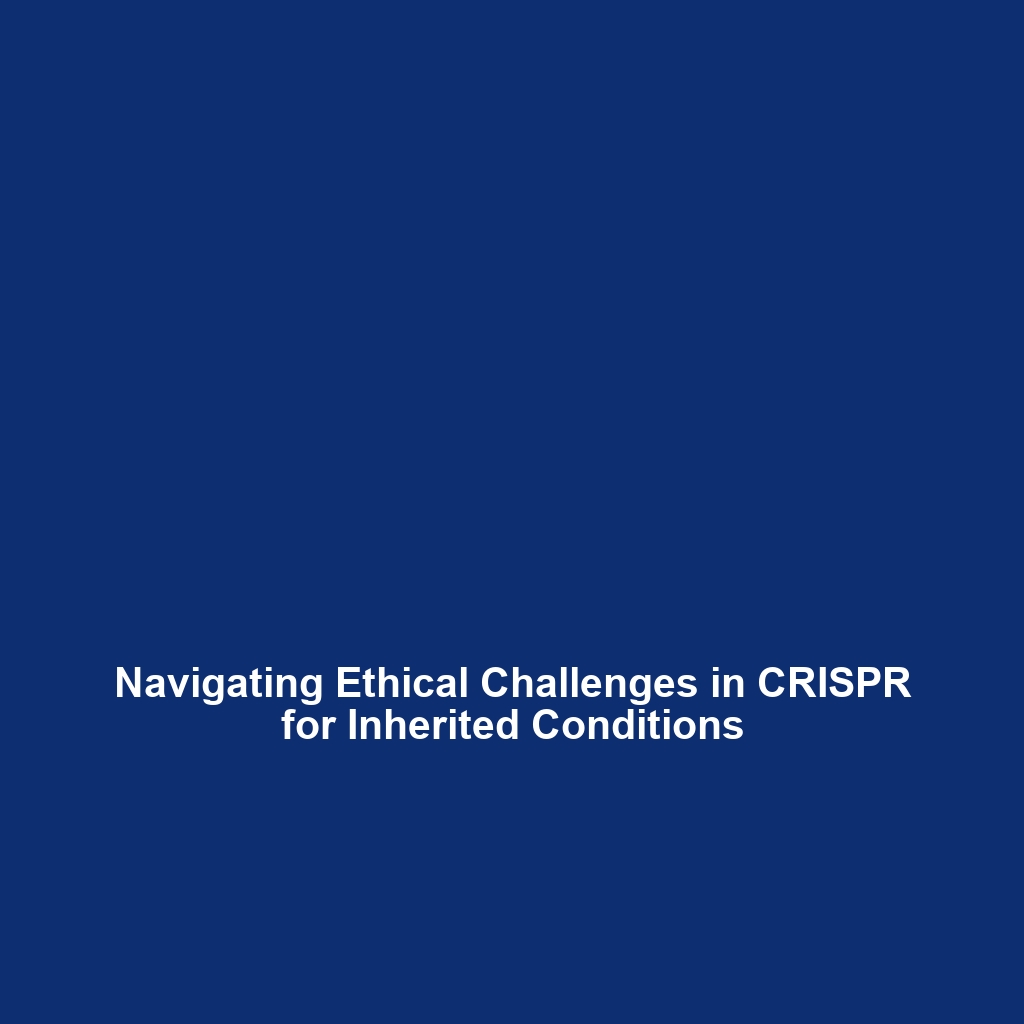Ethical and Environmental Concerns about Synthetic Biology and CRISPR
Introduction:
The revolutionary field of CRISPR Gene Editing has opened doors to unprecedented scientific advancements, particularly in synthetic biology. However, this technology also introduces significant ethical and environmental concerns that warrant serious consideration. As we explore the implications of gene editing, understanding how synthetic biology intersects with ethical dilemmas becomes essential. The discourse surrounding these issues not only shapes public perception but also guides regulatory frameworks and future innovations. With the ability to manipulate fundamental biological processes, the responsibility associated with this power is immense, making the ethical and environmental concerns of CRISPR a pivotal topic in modern biotechnology.
Key Concepts
Understanding the ethical and environmental concerns associated with synthetic biology and CRISPR involves exploring several key concepts:
- Gene Editing Ethics: The debate on whether it is morally permissible to alter genetic material, including human genes.
- Environmental Impact: Concerns about the potential repercussions on ecosystems from genetically modified organisms (GMOs).
- Regulation and Oversight: The need for frameworks to ensure safe and responsible use of CRISPR technology.
- Public Acceptance: The role public perception plays in the adoption and further development of CRISPR applications.
Applications and Real-World Uses
The ethical and environmental concerns about synthetic biology and CRISPR are deeply intertwined with their real-world applications. Some significant uses include:
- Improved Crop Resilience: How CRISPR is used to develop genetically modified crops that can withstand climate change effects, such as drought.
- Medical Applications: The role of gene editing in developing therapies for genetic disorders, showcasing both potential benefits and ethical quandaries.
- Biodiversity Conservation: Initiatives to use CRISPR for preserving endangered species, raising questions about ecological balance.
Current Challenges
Addressing ethical and environmental concerns within the scope of CRISPR gene editing presents several challenges:
- Scientific Uncertainty: Limited understanding of long-term consequences of CRISPR-modified organisms on ecosystems.
- Regulatory Gaps: Existing legislation may not sufficiently cover the rapid advancements in CRISPR technology.
- Public Mistrust: Skepticism among the public regarding the safety and morality of genetically edited organisms.
Future Research and Innovations
The future of CRISPR Gene Editing hinges on ongoing research that addresses ethical and environmental concerns. Innovations expected to emerge include:
- Advanced Regulatory Frameworks: Development of comprehensive guidelines that enhance public safety and ethical standards.
- Eco-friendly Editing Techniques: Research into CRISPR methods that minimize ecological disruption while enabling precision editing.
- Enhanced Public Engagement: Initiatives to educate and involve the public in discussions around gene editing ethics and environmental impact.
Conclusion
In summary, the ethical and environmental concerns surrounding synthetic biology and CRISPR are crucial to the responsible advancement of CRISPR Gene Editing. As this field evolves, not only must we consider the implications of our technological innovations, but we must also seek to create frameworks that promote safety, public trust, and ecological integrity. Staying informed and actively participating in discussions surrounding these issues will pave the way for a future where CRISPR technologies can be harnessed for the betterment of society and the environment. For more information, check out our articles on CRISPR Regulations and The Impact of Gene Editing.

Leave a Reply